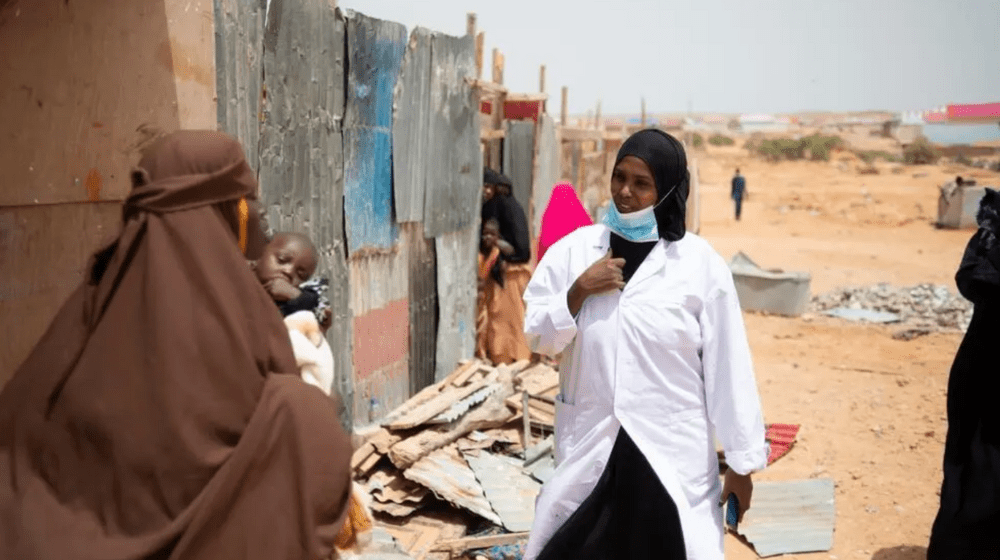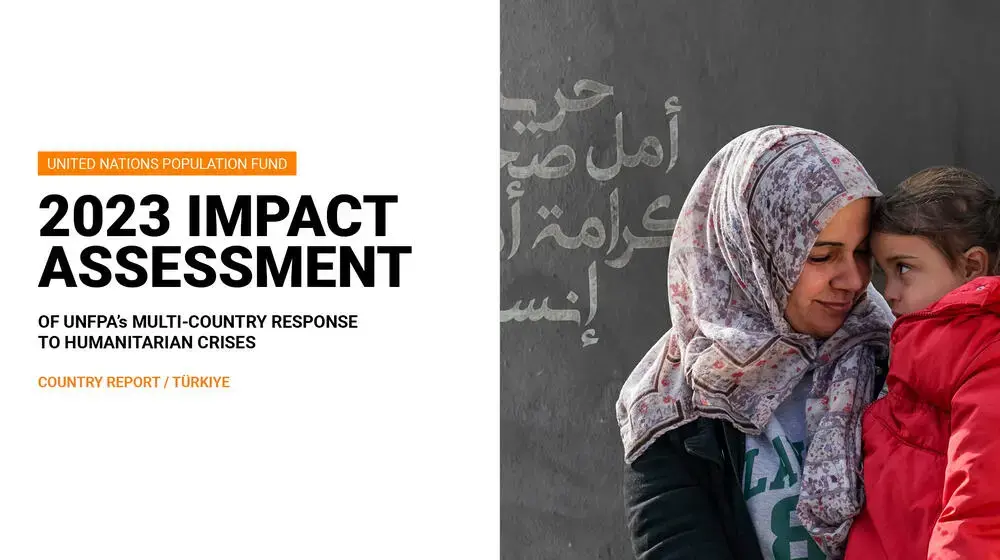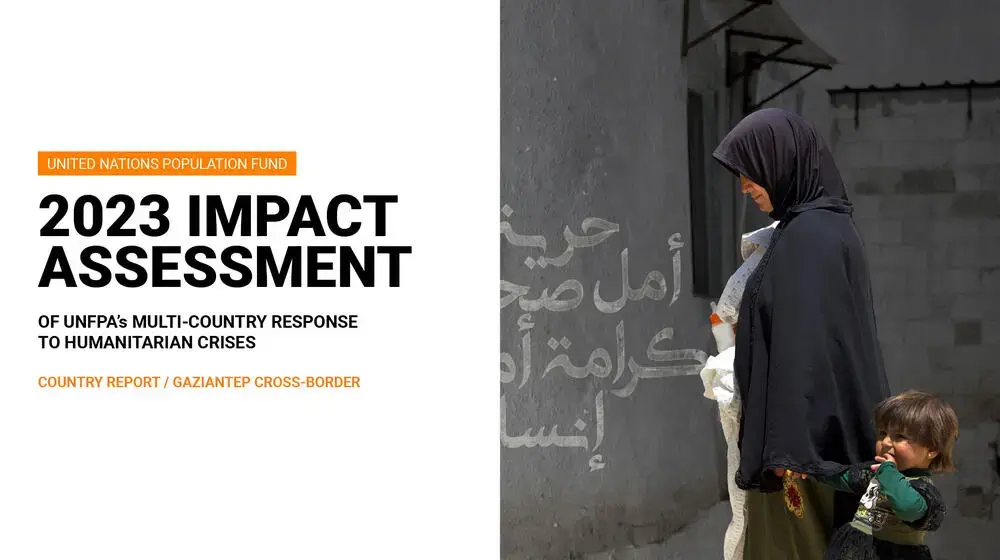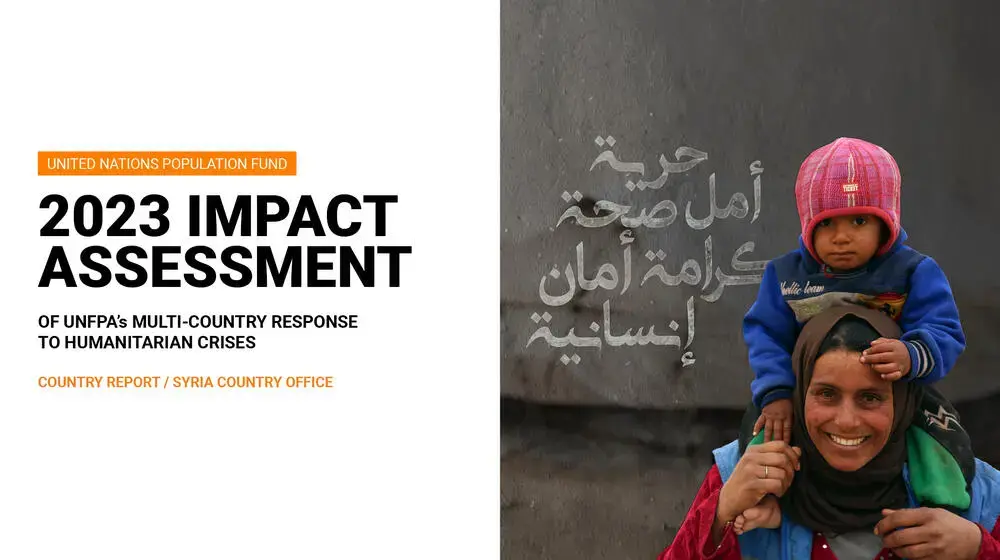PUNTLAND, Somalia – “I felt powerless… I looked around but it was too dark to see who had done this to me. I ran back home very scared – my family was still fast asleep.”
Khadijo*, 11, only ventured a few metres from her tent to go to the toilet, but alone in the dark she was easy prey for a sexual predator. From the gloom, a man quickly grabbed the young girl, clamping his hand over her mouth to silence her screams as he raped her.
After her rapist fled, Khadijo found her way back home in terror and pain. She tried to fall asleep as she bled through the night.
“I told my mother what had happened but she didn’t believe me. She ignored my plea to take me to a doctor and gave me one of her scarves to stop the bleeding, which went on for several days. I got weak and sick,” she told UNFPA.
Since last year, Khadijo has lived with her mother and four younger siblings in a small tent – or bur – in the Shabelle camp for people who have been forced on the move in search of respite from a devastating drought that has blighted Somalia for the past two years. Khadijo’s family left their home when the last of their livestock died and famine loomed.
Her father stayed behind, hoping the rains would finally come and the family would be able to return home.
So far, his hopes have been in vain: Nearly half the population – 7.8 million people – need immediate and sustained humanitarian assistance and 1.1 million Somalis have been displaced by the failed rains and biting hunger since January 2021. Of those, more than 80 per cent are women and children, who in emergency and displacement settings are at much higher risk of gender-based violence, exploitation and abuse.
Hope amid despair
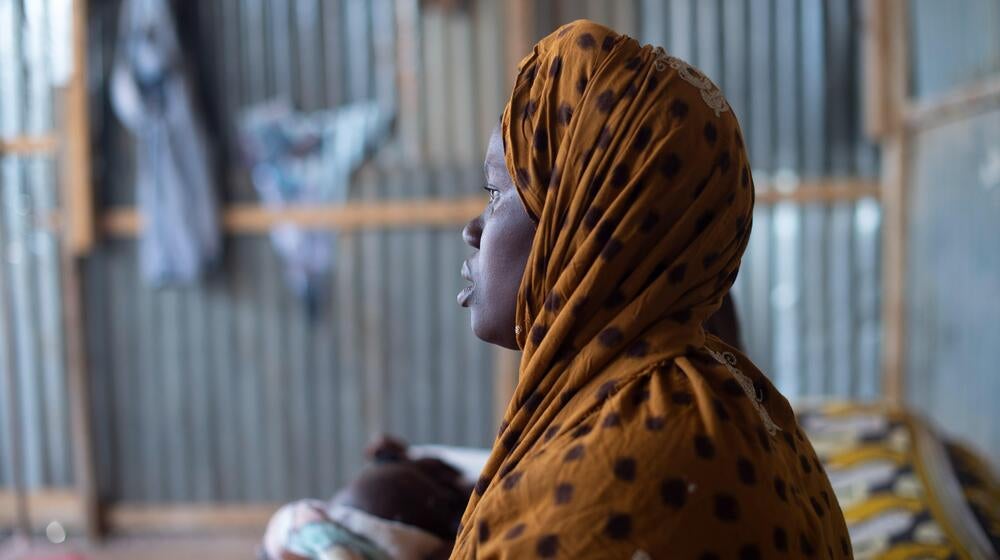
© UNFPA Somalia/Tobin Jones
The camp in the northeastern city of Bossaso houses more than 40,000 people from drought-hit areas of Karkaar, Hargeysa and Gardo. Although food and water are more available at the camp, life there is far from easy: There are no medical services, and without any functioning sanitary system in place people have to hide in thickets to relieve themselves.
Women often wait for darkness in the hopes of some privacy, as by early evening the streets are deserted – which is how Khadijo’s attacker caught her.
Without any health facility to offer care or support, she began to isolate herself, dealing with the physical and psychological trauma alone. “I felt like no one cared about me,” she told UNFPA. “I stopped trusting people because I was suspicious that they were going to hurt me.”
Almost a month later, a team of community paralegals from local NGO HILI Somalia visited the camp and learned about the attack. They informed Khadijo of a UNFPA-supported mobile legal aid clinic, which offers counselling and legal support to women, girls and other vulnerable and marginalized people.
A sexual health crisis for women and girls
Rape, intimate partner violence, sexual harassment, sexual exploitation and abuse, forced and child marriage, female genital mutilation and forced abortions are just some of the devastating forms of gender-based violence reported to be on the rise among displaced populations in Somalia.
Of those affected by the drought, UNFPA estimates that nearly 2 million are women and adolescent girls of reproductive age: With only one in five health facilities fully functioning across the country, their physical and mental well-being are at ever greater risk as the drought drags on, food resources dwindle and displacement increases.
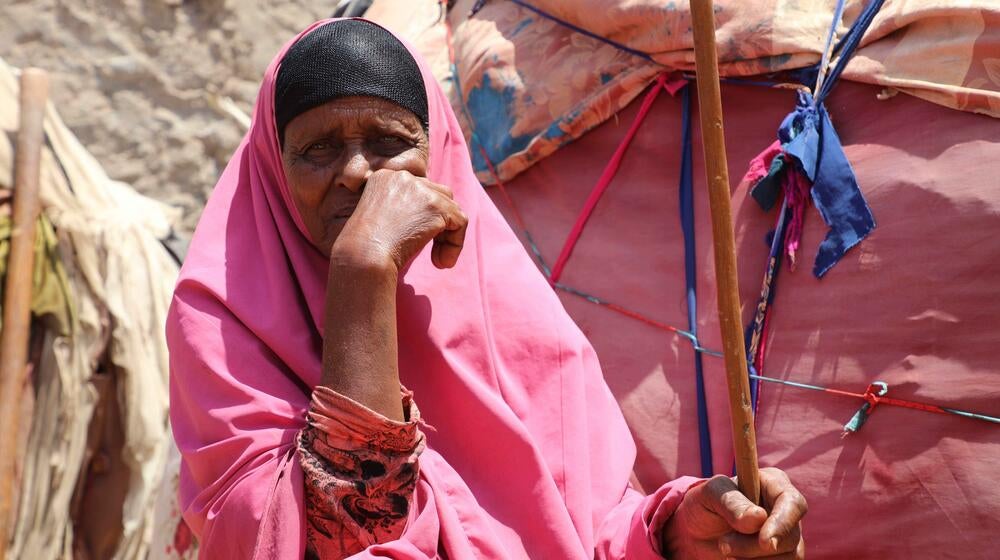
© UNFPA Somalia/Abdishakur Abbi
UNFPA in Somalia is scaling up its humanitarian operations providing quality, life-saving, confidential and timely mitigation and response services to escalating cases of gender-based violence. Six mobile outreach clinics are currently operating in IDP camps, providing outpatient services for sexual and reproductive health, family planning, and referrals when needed to the nearest health facilities. Safe spaces, shelters and one stop centres in internally displaced person camps and areas most impacted by the drought are being expanded to ensure that survivors of violence can access the comprehensive medical care and mental health and psychosocial support they desperately need to deal with their trauma.
For Khadijo, just being heard and the possibility of an investigation was encouraging. “The lady was willing to listen to me – she believed me,” she said. “I’m hopeful that I will get justice.”

